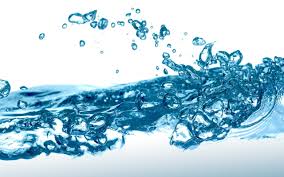记忆方法
将“liquid”分解为“liq”和“uid”。将“liq”想象成液体在流动(流动的水),而“uid”可以看作是“water”的水字的缩写。这样,你就可以通过“流动的水”这个形象来记忆“liquid”这个单词,它代表液体。
以上内容由AI生成, 仅供参考和借鉴
中文词源
liquid 液体
来自拉丁语liqui,融化,流动。
英语词源
- liquid
-
liquid: [14] Latin liquēre meant ‘be fluid’. From it was derived the adjective liquidus, which reached English via Old French (it was not used as a noun in the sense ‘liquid substance’ until the early 18th century). Also derived from liquēre was the noun liquor, which passed into Old French as licur or licour. English has borrowed this twice: first in the 13th century as licour, which was subsequently ‘re-latinized’ as liquor, and then in the 18th century in the form of its modern French descendant liqueur.
From the same ultimate source come liquefy [16], liquidate [16] (which goes back to a metaphorical sense of Latin liquēre, ‘be clear’ – thus ‘clear a debt’; the modern meaning ‘destroy’ was directly inspired by Russian likvidirovat’), and the final syllable of prolix[15].
=> liquor, prolix - liquid (adj.)
- late 14c., from Old French liquide "liquid, running," from Latin liquidus "fluid, liquid, moist," figuratively "flowing, continuing," from liquere "be fluid," related to liqui "to melt, flow," from PIE *wleik- "to flow, run." Of sounds, from 1630s (the Latin word also was used of sounds). Financial sense of "capable of being converted to cash" is first recorded 1818.
- liquid (n.)
- "a liquid substance," 1709, from liquid (adj.). Earlier it meant "sound of a liquid consonant" (1520s).
权威例句
- 1. We found a cyst and I suctioned off the liquid within.
- 我们发现了一个囊肿,我把其中的液体吸了出来。
- 2. Some people moved in silky, liquid movements, others were jerky, probably drunk.
- 一些人动作平稳流畅,其他人则跌跌撞撞,大概是喝醉了。
- 3. The hot liquid splashed down on the concrete and rebounded.
- 滚烫的液体泼在水泥地面上又溅了起来。
- 4. Empty the noodles and liquid into a serving bowl.
- 把汤面倒进上菜用的碗中。
- 5. Boil the liquid in a small saucepan to reduce it by half.
- 用小炖锅炖,收一半汤汁。

